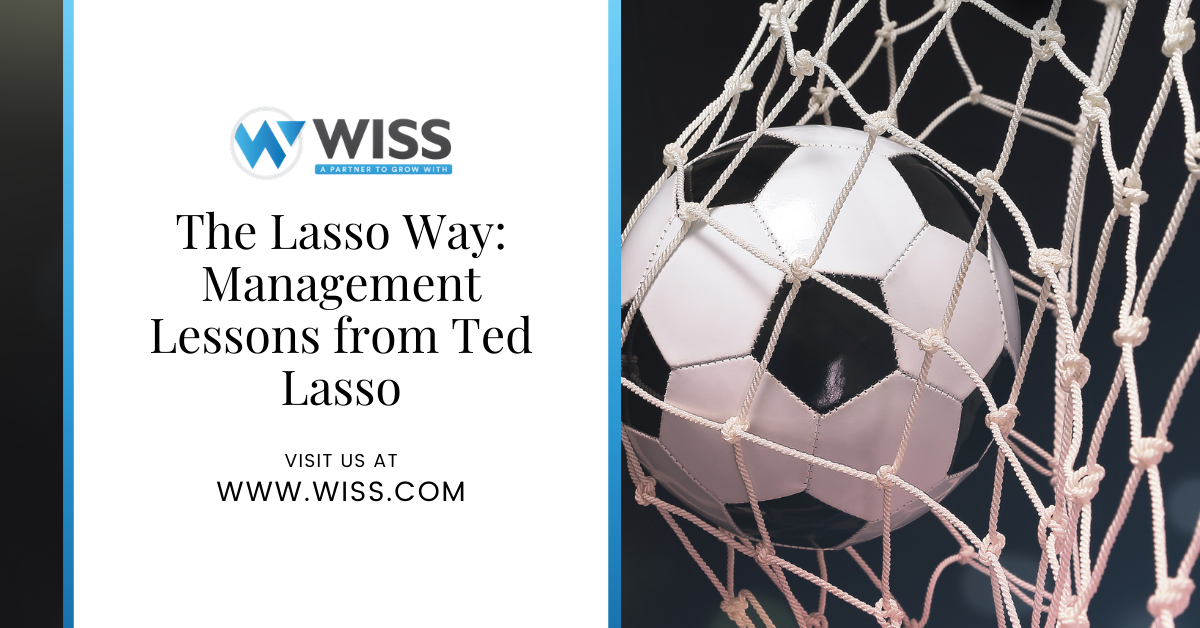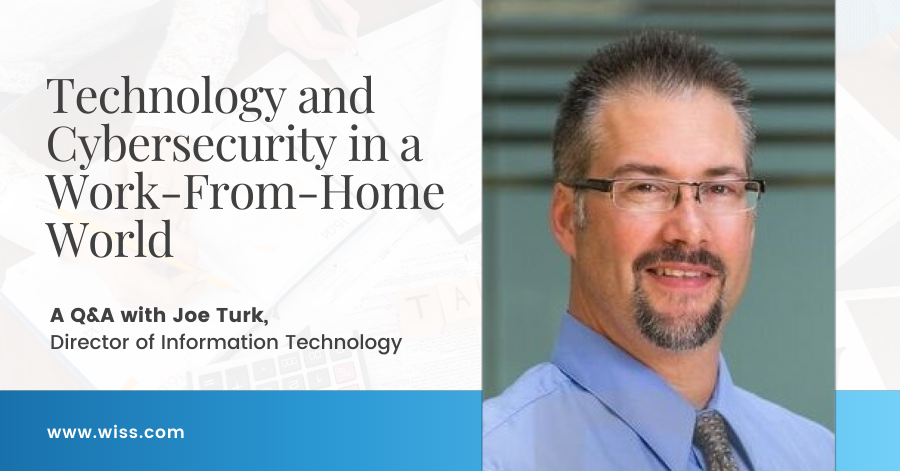By William Haemmerle, Director of Transaction Advisory Services
There are certain people we meet throughout our lives that we know will change us forever. They encourage us to become a better version of ourselves. I recently met one of those people while watching the first season of Ted Lasso on AppleTV. Yes, I said watching a television show!
Beginning with the 2013-2014 season, NBC acquired the broadcast rights to the English Premier League. The network ran promotional commercials that featured a fictional American football coach named Ted Lasso. Ted, created and played by Jason Sudeikis, was hired to coach an English Premier League football (soccer) club – the Tottenham Hotspurs. The commercial was about four and a half minutes long, and it was hilarious. When I heard they were going to make it into a television series, I was skeptical that the depth of the character could support a 30-minute television show, let alone a 10-episode season.
Like many people in Ted Lasso’s life, I completely underestimated his ability and judged him without being curious enough to get to know him. After watching the series a few times (some episodes more than 5 times at this point) in the past month and a half, I have become a fan of the Lasso Way and all that it stands for.
At its most basic, Ted’s philosophy is simple: “Be a good person, respect others, and judge no one.” But it is also much more complex than that. Jason Sudeikis, on Brené Brown’s podcast Unlocking Us, explained Ted as, “…Egoless. He allows people to be themselves and reflect what they think he is, but really what they are.” Jason is clear that Ted makes no judgments about people or their choices but rather accepts them with all their flaws. This is truly unconditional love.
The more that I watch the show, the more I hear Ted speaking to me and showing me what a good leader is. I have found myself trying to remember quotes or writing down some of the management lessons I gleaned from the show. Without giving away too much, here are 15 lessons I learned from Ted:
- Treat people with respect – This means to treat everyone from the kit man (water boy) to the Chairman of the Board with the same respect; every person has value.
- Communicate and fit people into your daily routine– Ted begins every day with “Biscuits with the Boss.” When he started this routine with Rebecca, the team owner, she wanted nothing to do with it. But Ted insisted saying “we can’t be good partners if we don’t know each other.” This means getting to know people by being curious and asking questions and really listening to the answers.
- Be a goldfish – According to Ted, a goldfish has a 15-second memory. He wants his players to make mistakes and move on. Do not dwell on the mistake, learn from it.
- Be understanding – Communicating with his players allows Ted to understand them and what they are experiencing. Whether it is a player’s first time away from home or a veteran dealing with losing a step or two, having that perspective allows a manager to have empathy.
- Be a mentor – Ted had a great quote for his captain, “You know how they say youth is wasted on the young, I say don’t let the wisdom of age be wasted on you.” He was encouraging him to be a mentor for one of the junior players and share his experiences.
- Good ideas can come from anywhere – Whether asking for advice on roster moves or dealing with his personal relationship issues with the Diamond Dogs, Ted has the ability and willingness to engage others on topics and issues where they have no agency over. Having no ego allows Ted to solicit and accept support from all levels of the organization. He always does what is best for the team and not necessarily himself.
- Obstacles can be opportunities – Take difficult situations and make them learning experiences so it is not so bad the next time around.
- Take the time to get to know the players and the community surrounding the team – Be a positive, productive part of the community.
- Teammates don’t need to be best friends to be great – Ted uses examples such as Shaq & Kobe, Lennon & McCartney, Woody & Buzz. Players simply need to have mutual respect.
- Don’t judge a book by its cover – Amazing talent can be discovered in some of the most unusual packages and places.
- Symbolism is important – Rituals and the severity of the initiation can bond a team together through shared experience.
- Leaders don’t always have to be taskmasters – Sometimes they need to be cheerleaders as well.
- Allow the members of the team to shine – Ted allows members of his staff to shine. He gives them credit and highlights their achievements which provides motivation and incentive to everyone in the organization and allows them to achieve the impossible.
- “Be curious, not judgmental.” – Ted uses this quote from Walt Whitman to express his frustration that most people in his life have second-guessed his ability without getting to know him. They simply judged him without understanding him.
- Believe! – From the beginning of Ted’s time in Richmond, it was clear that this was his motto. Ted mounted a “Believe” sign in the locker room. It is at the core of who Ted Lasso is – hope, opportunity, and love.
The true power of Ted Lasso is his ability to be fully present to each person he is with, and to be completely vulnerable during every interaction. He makes it clear that he is in each relationship for the long haul and will wear down your protective walls with his perseverance and his love. More importantly, he will never judge your imperfections or tear you down to make himself look better. Ted’s actions and the impact he has on others provide lessons about being a good spouse, parent, friend, teammate, coach, and person.
Ted is the quintessential leader who mixes optimism, motivation, humor, vulnerability, and love into a powerful tool to accomplish his goal of making everyone a better version of themselves.
I know that I am better off for knowing him…barbeque sauce!

 Previous
Previous






